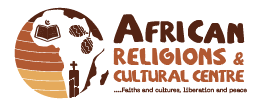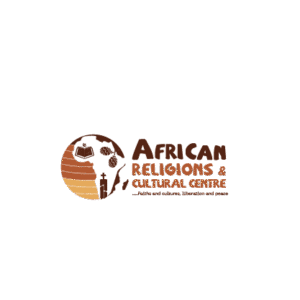The biblical narrative of Rachel’s lament in Matthew 2:18 resonates deeply with the contemporary African experience. The tears of Rachel, symbolizing the anguish of mothers mourning the loss of their children, echo the collective sorrow of African ancestors witnessing the struggles of their descendants. As closely knit as they are with their living descendants, they depend on human agency (contemporary African leaders who came from their loins) to fulfil their desires of bequeathing prosperity to their descendants. The question of dependency or reliance of ancestor on frail humans may seem like a convenient excuse for the powerlessness of ancestor to compel humans to do right, however several African proverbs and mythologies support this reliance of extra-terrestrial powers on human agencies for the pursuit of harmony, symphony and order in the created universe. This piece explores the parallels between Rachel’s lament and the African condition, examining the themes of leadership accountability, sustainable development, and cultural revitalization.
The Context of African Turmoil
Africa continues to face numerous challenges, including poverty, disease, conflict, and underdevelopment (World Bank, 2020; UNDP, 2020). These realities are sharp contrasts to the resources, opportunities and wealth that Africa potentially possesses. The legacy of slavery – and her siamese twin, colonialism – has contributed to these issues, perpetuating dependency and undermining African agency (Rodney, 1972; Mamdani, 1996). Corrupt leadership actively aided by foreign saboteurs, lack of transparency, and influence from external superpowers exacerbate these problems, fueling the sorrow of African ancestors.
Leadership Accountability
The absence of accountable leadership is a significant contributor to Africa’s woes (Ayittey, 2005). The accountability deficit begins from poor leadership recruitment processes, fraudulent electoral practices, constitutional amendment fraud, leadership imposition and untidy tenure elongation schemes. Corruption, nepotism, and authoritarianism undermine trust and hinder development (Hope, 2017). Rachel’s lament serves as a reminder of the need for leaders who prioritize the well-being of their citizens, ensuring transparency and justice in governance.
Sustainable Development
Africa’s development requires a shift from dependency to self-sufficiency (Ake, 1996). Sustainable development strategies must prioritize African agency, resource management, and environmental sustainability (UNECA, 2016). This must adequately address widespread collusion of public servants with foreign interests who fail to put Africa first and rip the continent of opportunities by negotiating unfavourable bi-lateral agreements and signing illogical resource exploration and exploitation contracts among others. By honoring ancestral wisdom and promoting African identity, we can foster a sense of ownership and responsibility, driving progress.
Cultural Revitalization
The erosion of African cultures and identities has contributed to the continent’s challenges (Fanon, 1967). Rachel’s lament symbolizes the need to reconnect with ancestral heritage, promoting cultural revitalization and African pride (wa Thiong’o, 1986). By embracing their cultural roots, Africans can reclaim their agency and shape their own destiny. Africa has demonstrated a shallow or convenient application of Abrahamic faiths which now overshadows their indigenous beliefs. Leaders and followers alike exploit grace and forgiveness in these new faiths. They refuse to acknowledge the provisions of accountability, punishment and retribution which the indigenous traditions openly and consistently project. Perhaps, a return to the elements of the faiths which culturally suit their innate essence will remediate this cultural void.
Conclusion
Rachel’s tears serve as a poignant reminder of the ancestral sorrow that permeates the African experience. By acknowledging this lament, we honour the resilience of African ancestors and their descendants. To address the challenges facing Africa, we must prioritize leadership accountability, sustainable development, and cultural revitalization. Only then can we hope to stem the tears of the numerous Rachels in the African context and forge a brighter future for Africa.
References:
Ake, C. (1996). Democracy and Development in Africa. Brookings Institution Press.
Ayittey, G. B. N. (2005). Africa Unchained: The Blueprint for Africa’s Future. Palgrave Macmillan.
Fanon, F. (1967). Black Skin, White Masks. Grove Press.
Hope, K. R. (2017). Corruption and Governance in Africa: Swaziland and the Politics of Citizen Engagement. Palgrave Macmillan.
Mamdani, M. (1996). Citizen and Subject: Contemporary Africa and the Legacy of Late Colonialism. Princeton University Press.
Rodney, W. (1972). How Europe Underdeveloped Africa. Bogle-L’Ouverture Publications.
UNDP (2020). Human Development Index.
UNECA (2016). Africa’s Development Dynamics.
wa Thiong’o, N. (1986). Decolonising the Mind: The Politics of Language in African Literature. James Currey.
World Bank (2020). World Development Indicators.

